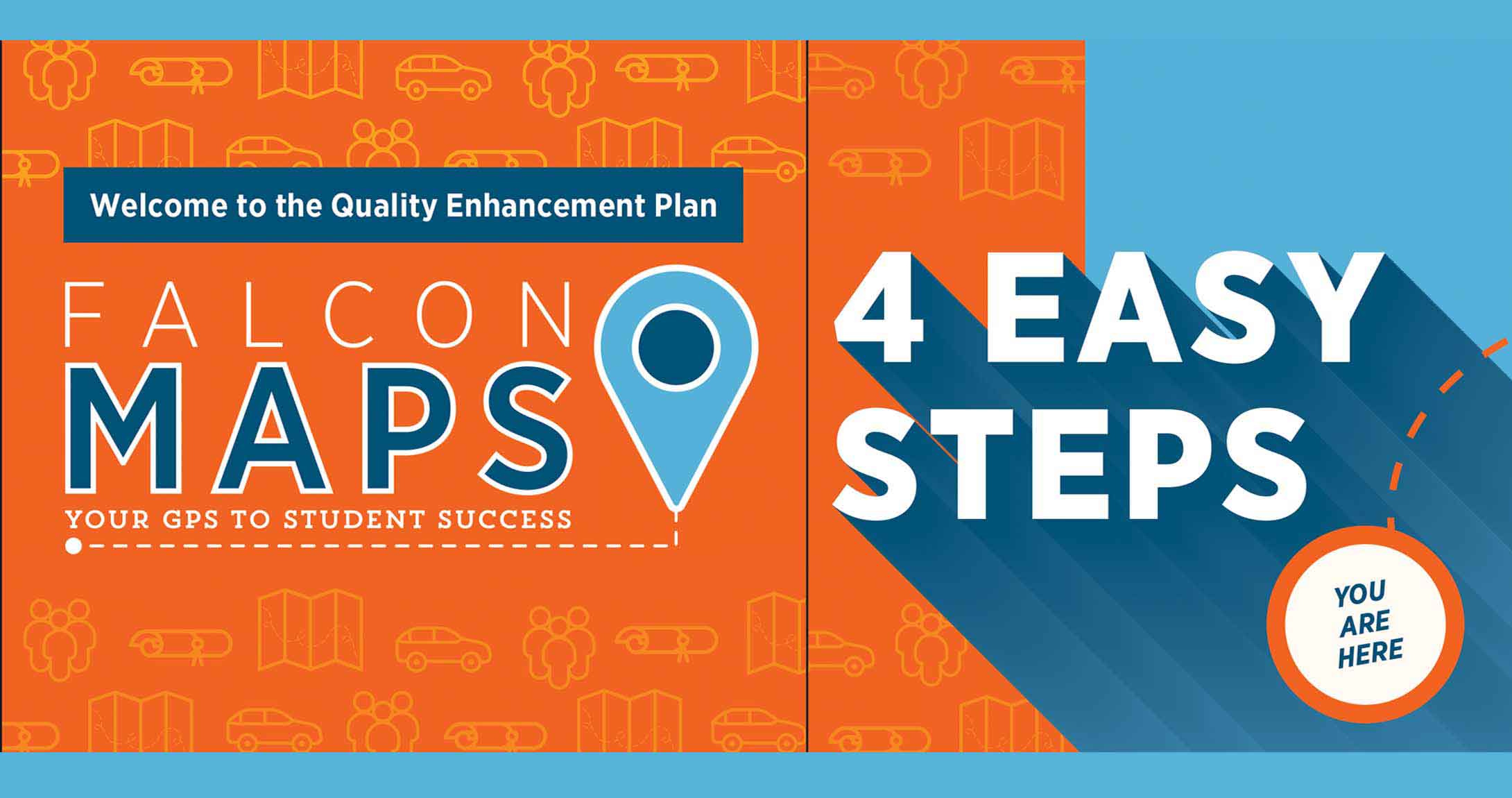
What is QEP?
The success of our students is our number one priority at UT Permian Basin. We’re committed to walking with them every step of the way until they reach their ultimate goal – earning a degree! That’s where the Quality Enhancement Plan (or QEP for short) comes in. We call it Falcon Maps: a guided, seamless path to graduation. Our QEP is designed to enhance student learning and success over a five year period. We surveyed students, staff, and faculty to identify the most important priorities for this project. Take a look at the steps to success.
Step 1: Degree Maps
The first step is to create degree maps which represent a student’s four year plan at UTPB. An ideal degree map offers the preferred plan for each major across four years. In addition, the student will identify social and professional opportunities through his/her UTPB career.
Step one benefits our entire campus community. First, students receive a map of which courses to take across eight semesters to meet program prerequisites. This keeps them on track for graduation. At the same time, students can engage in social and professional activities to encourage connections beyond their university tenure. Faculty will commit to a four-year course rotation in keeping with the degree map, planning for the needs of the program years in advanced. Advisors, too, benefit by having a document that expresses the requirements of each degree/certification program at the University and can communicate those requirements with students.
Step 2: Meta-majors
We want to create an engaging learning environment for students. To support that effort, degree programs will be categorized into meta majors. A meta major is a grouping of degrees with similar core requirements and pathways.
Students benefit from meta majors because it groups them with other students who are pursuing the same core requirements during the first few years of their degree plans. Should a student choose to change majors, he or she can transition into a meta-major without losing credit hours. Advisors are assigned to one meta-major group to serve the needs of students for the first two years of their respective programs and even if they change majors, they keep the same advisor, ensuring consistent advice.
Step 3: Advising Events
There will be two advising events to foster partnerships between advisors and faculty advising mentors and relationships between students and advisors and faculty advising mentors.
Advisor and Faculty Advising Mentor Workshops: Prior to the start of the Fall semester each year, advisors from the Advising Center and faculty who intend to be advisors for the academic year will participate in a workshop. The campus will invite an expert in advising to relate current scholarship and trends in higher education advising to both cohorts. Also, during this workshop, the advisors will meet with their respective meta-major faculty advising mentors to assess the degree map and program requirements to insure both parties have a common understanding of advising issues related to the curriculum.
Student Advising Workshops: During the fall and spring semesters prior to the opening of the registration period, students will meet with their meta-major groups, divided by classification (freshmen, sophomore, junior, and senior), and their assigned meta-major advisor and faculty advising mentors to review upcoming requirements, course offerings, and social/professional opportunities. Advisors and faculty advising mentors can address individual student issues and provide a recommended course schedule for the upcoming semester. At the end of the session, those students who attend can register for courses for the next semester.
These workshops will benefit all by providing campus-wide partnerships to foster student engagement and success.